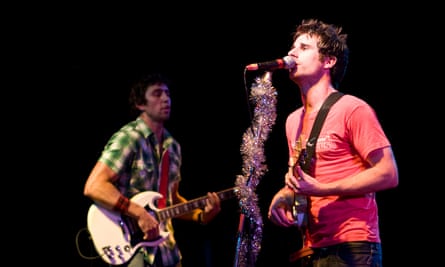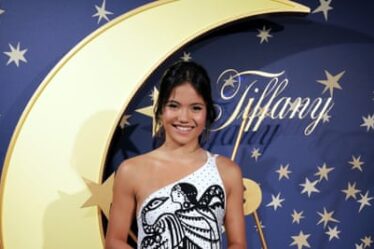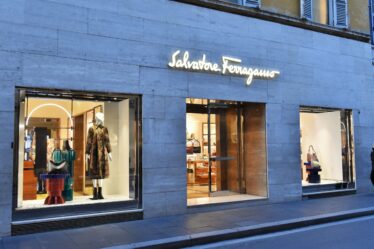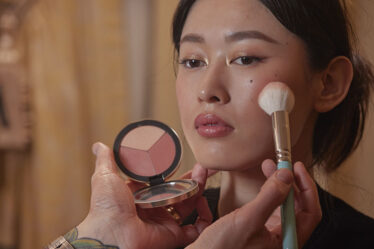
Craig Silvey has a knack for telling Australian stories. His second novel, Jasper Jones, was a runaway success that sold over 400,000 copies and became one of the defining local reads of the decade. In 2020, the Fremantle-born writer followed up with the tender-hearted Honeybee. Now, Silvey is back with an “all ages” book, Runt, illustrated by Sara Acton. It tells a classic Australiana story of country girl Annie Shearer and the adopted stray dog who becomes her best friend.
But before he found fame as a writer, Silvey was a self-taught musician who played “unforgivably awful” songs on an electric ukulele. Here, he reminisces about his time wielding that one-of-a-kind instrument, and shares the story of two other prized personal belongings.
What I’d save from my house in a fire
My powder-blue soprano electric ukulele. It’s a bespoke item, the only one of its kind.
In my early 20s, I taught myself to play the ukulele. My ability progressed, and I discovered songwriting, quite by accident. It just clicked. It was as though I could speak another language. I swiftly wrote many songs, many of them unforgivably awful. But, being the obsessive type, I purchased a cheap microphone and, very discreetly, turned my bedroom into a lo-fi recording studio.
Then came the moment of truth. I had some friends over and explained that I’d discovered a new band that were blowing up. I said they were Canadian because that seemed sufficiently exotic. They were called The Nancy Sikes. I pressed play and held my breath. To my genuine surprise, they loved the songs. I felt safe enough to confess [that the songs were mine].

Full of stupidity and enthusiasm, undeterred by our severe lack of ability, we officially formed the band then and there.
The Nancy Sikes practised hard. We played some unusual gigs: birthday parties for the offspring of basketball legends, weddings for internationally heralded illustrators. We broke the record for walk-up ticket sales at Fremantle’s Fly By Night Club. Our reign was quixotic and short-lived, but not a month goes by that I don’t wish we were back together.
My most useful object
A Benriner Japanese mandoline.
I love to cook. As a novelist who chips away at a single creative project for years at a time, preparing dinner is often my favourite part of the day, because it gives me the elusive sensation of actually completing a task.
I’m a messy cook. I’m a fast cook. I’m an intuitive cook. I maintain my knives poorly and disrespectfully. My juliennes are like a bundle of sticks. My dicing is dicey. My crockery and kitchenware are favoured for their nostalgic value rather than utility or beauty. My plating is hot garbage. As such, my food looks, at best, rustic.
But when I pull out my mandolin slicer, as I often do, I’m transformed. Cue the Vivaldi, tuck in your napkin, because we’re eating under the luminous glow of my Michelin star. Gawk in awe at the uniformity of my apple slices. Marvel at the paper-thin potato populating my gratin. Stare disbelieving at my delicate flakes of parmesan. “How does he do it?” you whisper, dumbfounded. I’ll never tell.
The item I regret losing
I adored reading when I was a child. As a coward, it was a conveniently safe way to feel adventurous – to meet new people and discover new places and search for answers to mysteries unknown.
When I realised that I could make up my own stories, that I could spellbind readers and lead them on a journey whose outcome I had divined, I knew who I was. I knew who I would be. I was a writer. The thrill has never ebbed.
My first breakthrough came at the age of 10, when I penned a dryly comic memoir piece about my courageous experience with a tonsillectomy procedure. It was titled: Tonsawha? It yielded third prize in the West Australian Young Writers Competition. Suddenly, I was flush with a cash prize, my first brush with critical acclaim, and my first round of applause. There was no hope for me after that.
Sadly, Tonsawha? is lost to the ether. I can find no evidence of it among the scrapbooks and photo albums and assorted memorabilia at my mother’s house. Mortified and uncomfortable as I am at the prospect of reading through any of my published work, I would dearly love to read through that little story again.



